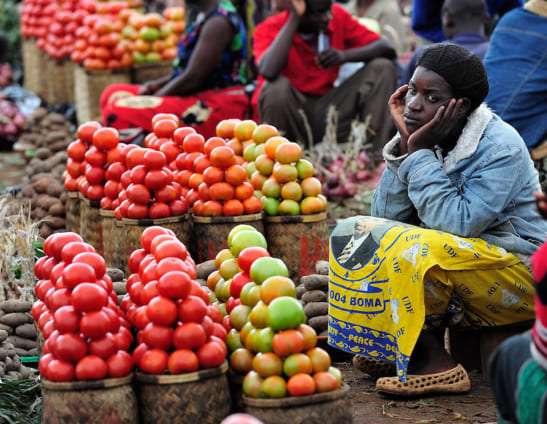The World Bank’s latest Food Security Update report has sounded a cautionary note, indicating that food prices are set to remain elevated throughout 2024. This projection comes amidst a backdrop of persistently high inflation rates across various income brackets in the previous year.
In its assessment, the Washington-based lender highlighted that inflation levels surpassed 5% in a significant portion of low, middle, and high-income countries in 2023. Notably, 63.2% of low-income nations like Ghana experienced such inflationary pressures, marking a 1.3% increase compared to the previous assessment in January 2023.
Moreover, the report revealed that 73.9% of lower-middle-income countries and 48% of upper-middle-income countries grappled with inflation exceeding 5% in the food sector, with no significant change observed since the previous update.
Even in high-income countries, where economic stability is typically more robust, food inflation remained a concern. The report noted that 44.4% of these nations reported food inflation rates surpassing 5%, albeit showing a slight decrease of 1.9% compared to the earlier assessment.
An alarming trend highlighted by the World Bank was the prevalence of food price inflation outpacing overall inflation rates. In approximately 71% of the 165 countries for which data was available, food inflation exceeded general inflation, indicating the disproportionate impact of rising food costs on consumer budgets worldwide.
Factors Contributing to This Concerning Trend
Several factors contribute to this concerning trend. Supply chain disruptions, exacerbated by the COVID-19 pandemic and Russia-Ukraine War, continue to exert pressure on food production and distribution networks. Climate-related challenges, such as extreme weather events and disruptions to agricultural cycles, further compound these issues, leading to reduced crop yields and heightened price volatility.
Additionally, geopolitical tensions, trade disputes, and fluctuations in global commodity markets contribute to uncertainty and speculation, amplifying price fluctuations in the food sector.
According to the International Food Policy Research Institute (IFPRI), the recent attacks by Houthi rebels on ships in the Red Sea have triggered a 40% decrease in trade volumes in the Suez Canal, which is decreasing global food security.
It said the World Bank’s Global Economics Prospects 2024 report emphasised the critical problem of food insecurity within the context of various challenges.
“In 2023, food prices, a significant component of the agricultural price index, declined by 9% because supplies of major crops were ample, except for rice, which declined by 27%. Food prices are expected to decline further in 2024 and 2025, although potential risks such as energy cost increases, adverse weather events, trade restrictions, and geopolitical uncertainty could affect them”, it stated.
The report continued that a blog post from the World Bank Agriculture and Food Global Practice discussed the urgent need for circular food systems to address environmental challenges.
The implications of sustained high food inflation are far-reaching. For vulnerable populations already grappling with economic hardship, rising food prices can exacerbate food insecurity, pushing more individuals and households into poverty. Moreover, businesses across various sectors face increased operational costs, potentially leading to higher consumer prices and dampening economic growth prospects.
Addressing the root causes of food inflation requires a concerted effort from governments, international organizations, and stakeholders across the food supply chain. Policy interventions aimed at enhancing agricultural productivity, improving market efficiency, and fostering resilience to climate shocks are crucial to mitigating the impact of high food prices and ensuring food security for all.
As the global community grapples with the challenges posed by elevated food inflation, proactive measures and collaborative initiatives are essential to safeguarding the well-being and livelihoods of millions worldwide.
READ ALSO: Zenith Bank Expands Reach with 42nd Branch Opening in Ashaiman





















